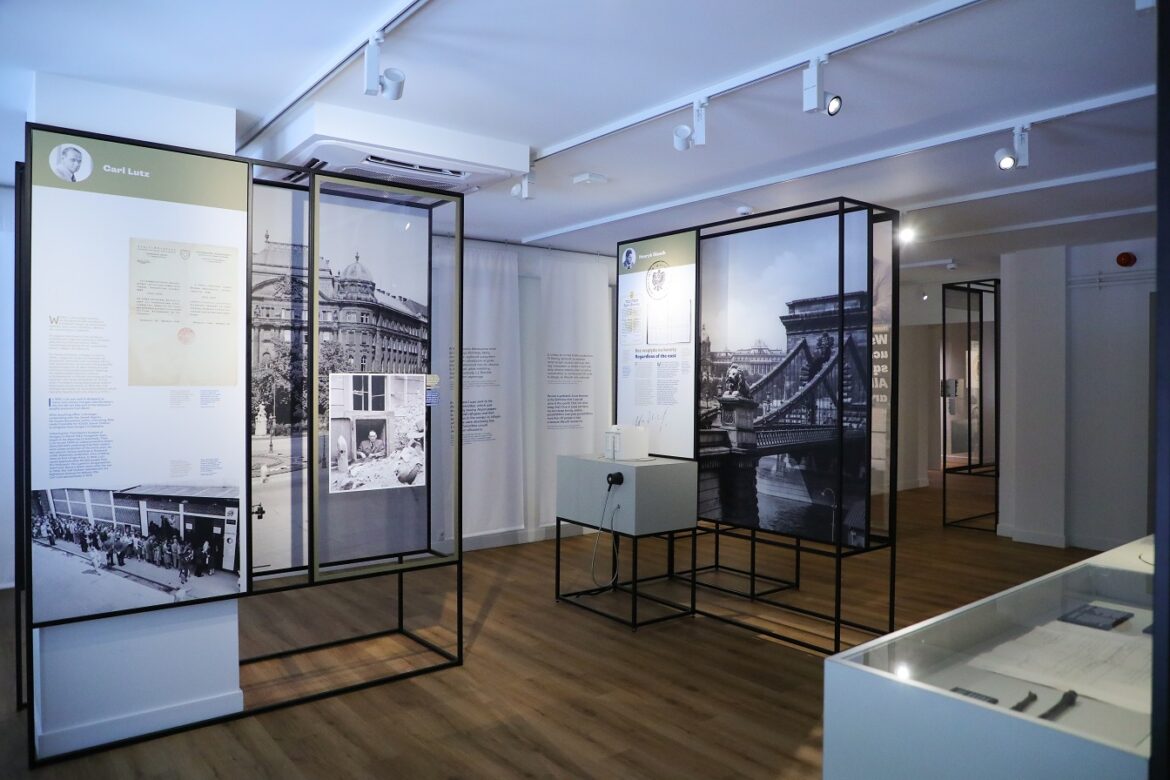In the new artistic space DeBeK Gallery in the House Without Corners’ the exposition “Decision to Save People” is on display. It is devoted to the diplomatic efforts to rescue people of Jewish origin during the Second World War. It presents the biographies of people who fought not on the frontlines, but at their desks, using their own signatures and seals as weapons.
The main focus of the story was the Ładoś Group – a group of Polish diplomats who, under the leadership of Aleksander Ładoś, Polish MP in Bern, Switzerland, in cooperation with Jewish organisations, were involved in issuing illegal passports to European Jews for Latin American countries. The members of the Group included: Aleksander Ładoś, Juliusz Kuhl, Stefan Ryniewicz, Konstanty Rokicki, Chaim Eiss, Abraham Silberschein.
“This is the story of Polish and foreign diplomats from the years of World War II who, working together and with Jewish communities around the world, saved thousands of human lives,” said Minister of Culture and National Heritage Piotr Gliński at the opening of the exhibition.
The research uncovers the scale, significance and uniqueness of the operation of the group, which saved citizens of Poland and other countries (including Germany, Austria, the Netherlands or pre-war Czechoslovakia). Such a large-scale operation would not have been possible had it not been for the close cooperation of Polish diplomats and Jewish communities, which sets the Ładoś Group apart from other aid operations carried out during the Holocaust by diplomats of other countries.
In the ‘DeBeK’ gallery, handwritten notes, correspondence, testimonies, and sources helping to establish the names of Jews who were given passports giving them a chance to be saved from the Holocaust, as well as private objects obtained from abroad from relatives of participants in the events of 80 years ago, were made available to the public for the first time.
Arkadiusz Słomczyński





